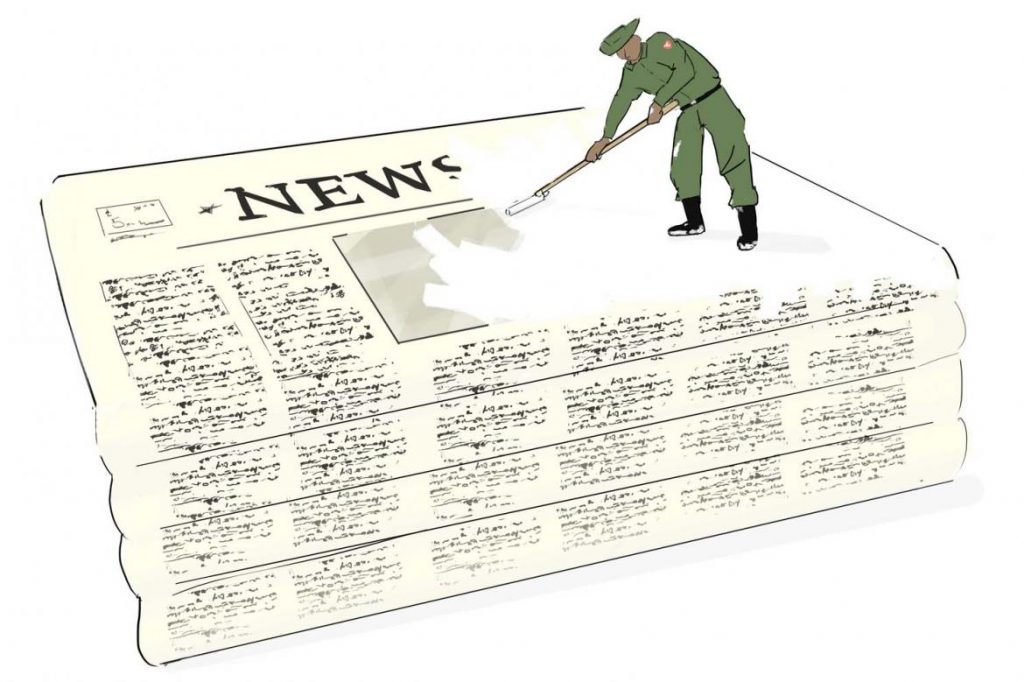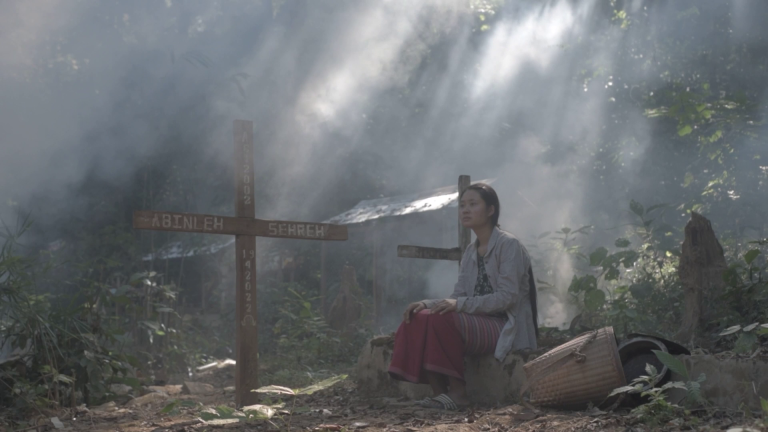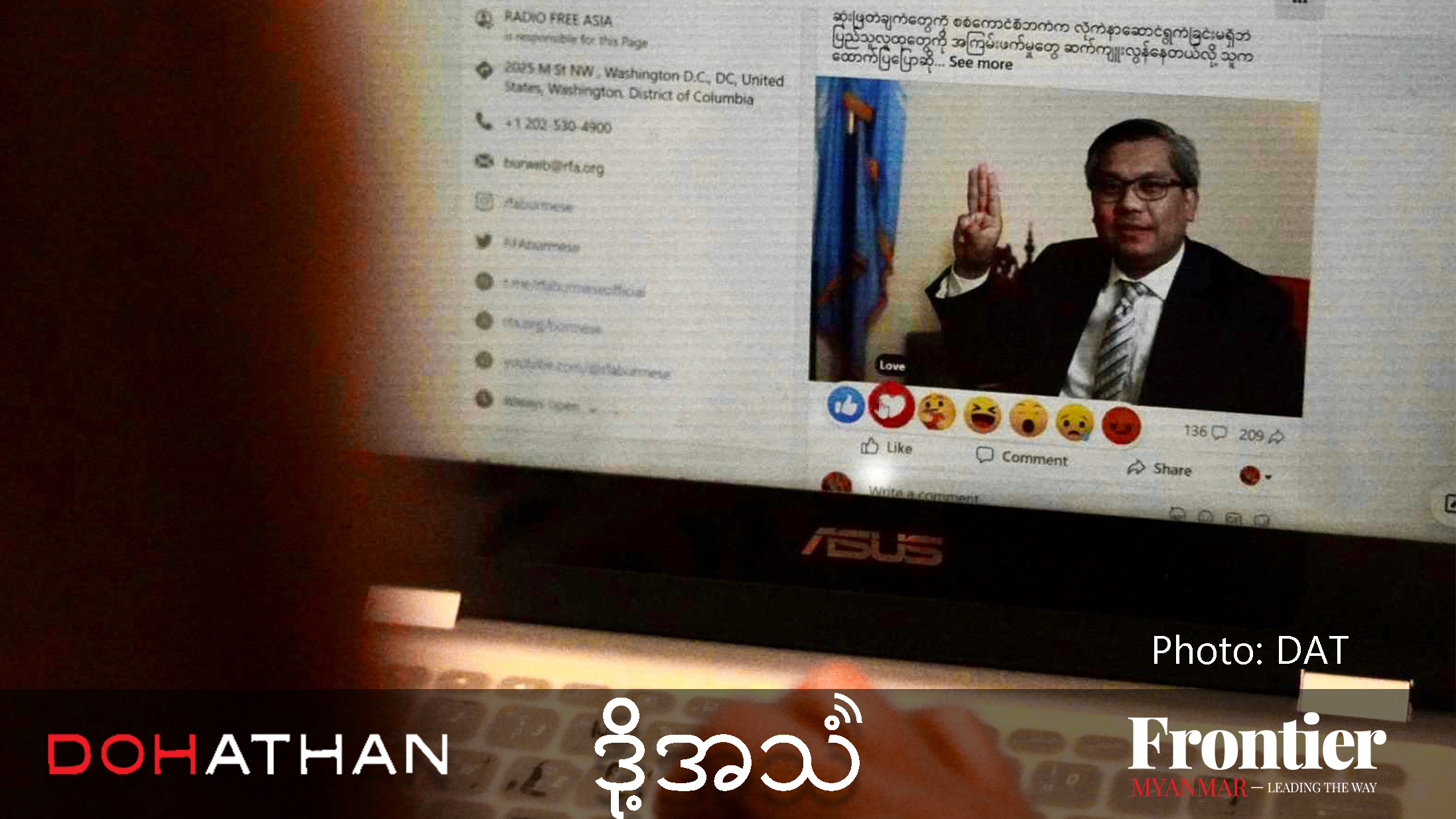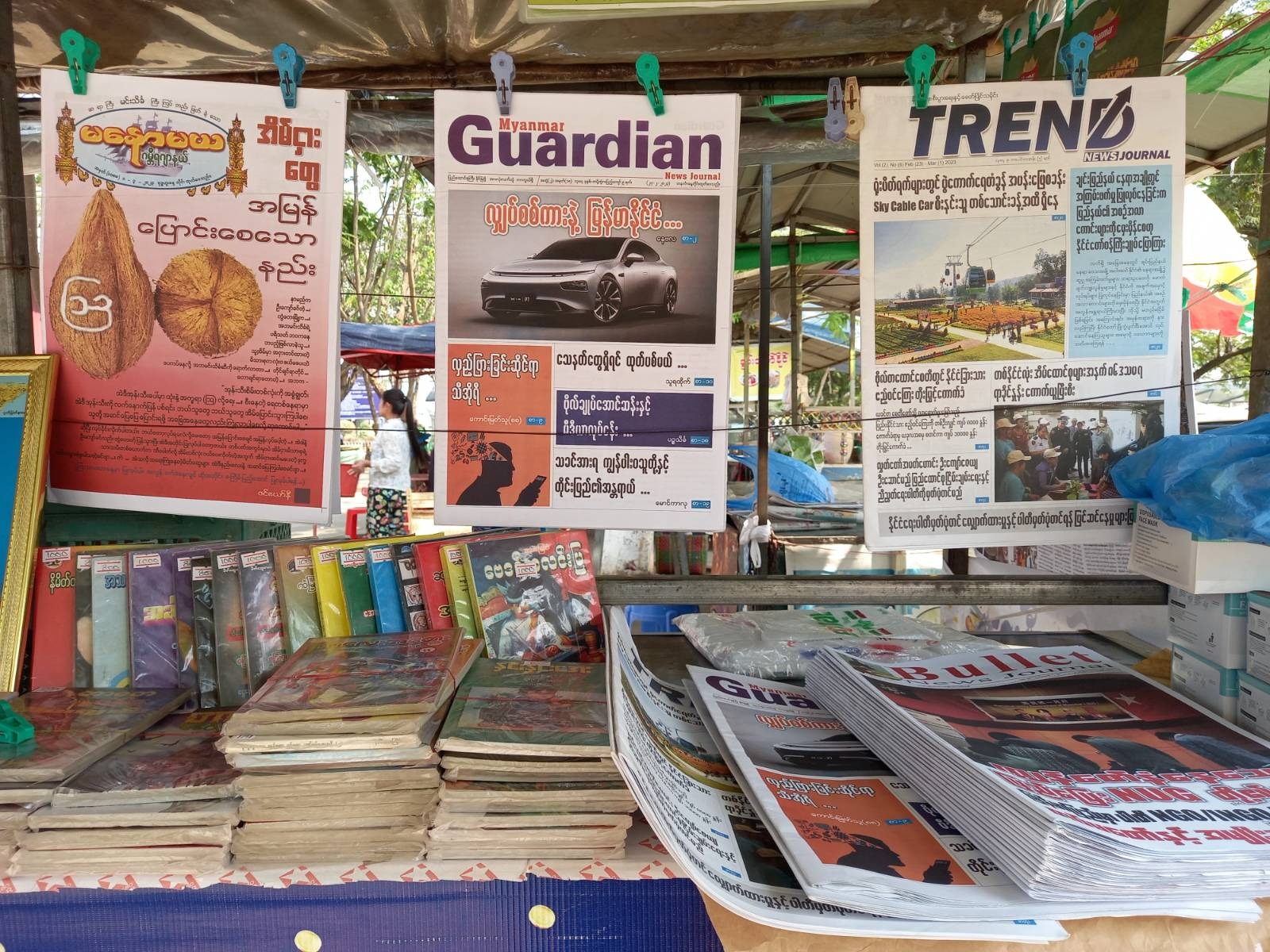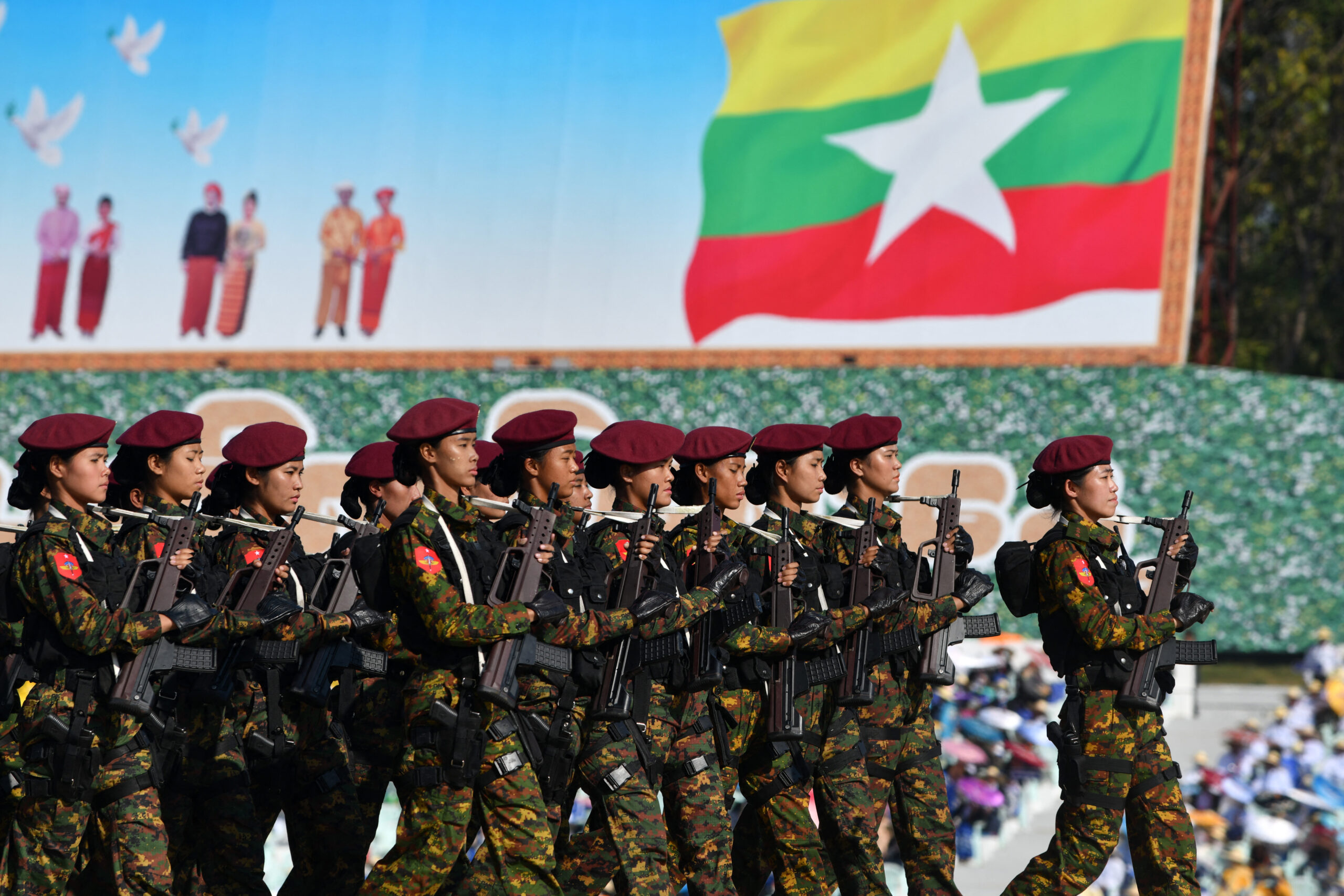More than five decades of government propaganda and draconian censorship in Myanmar has contributed to a culture of denial.
By GEOFFREY GODDARD | FRONTIER
A LIVELY free press flourished in Rangoon in the 1950s, when the city was regarded as the jewel of the East, and its emporiums bustled with shoppers visiting from other Southeast Asian countries. The capital of newly-independent Burma supported about 30 daily newspapers, published in Burmese, English, Chinese and South Asian languages. It was a golden period for journalism in Burma, but its days were numbered.
After General Ne Win seized power in 1962 he launched a war on inconvenient truths by introducing a suffocating censorship regime that doomed the vibrant newspaper market. The Printers and Publishers Registration Law, enacted soon after Ne Win’s putsch, restricted the private sector to weekly newspapers (known as journals) and required all “handwritten and printed material” to submit to draconian pre-publication censorship.
It was not until 2012, under media reforms introduced by the government of President U Thein Sein, that the curse of pre-publication censorship was abolished and privately-owned journals were permitted to apply for daily publishing licences.
For 50 years, the print media was limited to a few state-run daily newspapers devoted to government propaganda and heavily-censored private-sector journals.
Support more independent journalism like this. Sign up to be a Frontier member.
An objective of censorship is to deny reality, and Burmese officials have long been accomplished at denying any reality that reflects negatively on their country. They have reached new levels of dissembling over what the United Nations and United States have called the ethnic cleansing of the Rohingya in northern Rakhine State.
When UN High Commissioner for Human Rights, Mr Zeid Ra’ad al-Hussein, said in March 2018 that the Myanmar authorities were “serial deniers of the truth”, the comment might have been inspired by veteran bureaucrat U Thaung Tun. In January 2017, Thaung Tun was appointed National Security Adviser to the National League of Democracy government headed by State Counsellor Daw Aung San Suu Kyi.
Addressing the UN Security Council on September 28, 2017, Thaung Tun said, “there is no ethnic cleansing or genocide in Myanmar”. Speaking on the sidelines of a UN Human Rights Council meeting in Geneva on March 8, 2018, Thaung Tun told reporters that Nay Pyi Taw wanted to see “clear evidence” to support accusations of ethnic cleansing or genocide.
It was a disingenuous response: Myanmar will not allow a fact-finding mission appointed by the UN Human Rights Council to investigate allegations of abuses in Myanmar, including in northern Rakhine, to which journalists have also been denied independent access since August 2017.
When the UN announced the appointment of Indonesian human rights lawyer, Mr Marzuki Darusman, as chair of the three-member fact-finding mission in July 2017, the Human Rights Council reiterated its “hope that the Government of Myanmar will grant the Mission unfettered access to affected areas”. The request came weeks after Myanmar said it would deny visas to the mission, which was formed the previous March. Myanmar did not relent because it is in denial about what the mission wants to investigate.
It is also in denial over the reports of UN special rapporteur on human rights in Myanmar, Ms Yanghee Lee, who was told by the NLD government last December that she was banned from further visits.
It was in denial in November 2001 when Thaung Tun was director general of the Political Affairs Department of the Ministry of Foreign Affairs and the US had issued its annual report on the state of religious freedom around the world.
The State Department report, during the campaign against the junta led by western countries mesmerised by the appeal and promise of Aung San Suu Kyi, listed Myanmar as a country of “particular concern” for the third consecutive year.
A Myanmar Times story submitted to the censors about the military government’s reaction to the report quoted Thaung Tun as complaining that Myanmar had been “singled out for reasons other than religion”.
He added that Myanmar should be regarded as a model society for religious tolerance and freedom.
The censors cut two sentences from the story that contradicted Thaung Tun’s rhetoric.
They said: “The report accused the Myanmar government of restricting some religious activities, including the building of churches and mosques. It said the government ‘generally infiltrated or monitored the meetings and activities of virtually all organisations, including religious organisations’.”
I know what was cut from the story because at the time I was editor of the English edition of the Myanmar Times.
As any Burmese journalist, editor, author or poet who endured pre-publication censorship can tell you, it was an onerous, exasperating, disheartening, and relentlessly frustrating, experience. I never thought at the time that working under the junta’s censorship regime was a privilege. But in one way it was, because it revealed to all of us at the receiving end of it a wealth of information about the junta and its concerns, sensitivities, attitudes and worldview.
I exploited that unlikely privilege over the decade I worked at Myanmar Times by keeping evidence of censorship decisions. I accumulated pages of examples of the junta’s way of denying the truth.
In its early years, Myanmar Times was often accused of being pro-government, but the criticism was unfair. The criticism displayed extraordinary ignorance about the objectives of censorship under the military junta, or any totalitarian regime, and its effect on a publication’s ability to report without fear or favour, or even to report at all.
Did our critics really think the military government’s censors would allow Myanmar Times, or any other private-sector publication, to publish reports unfavourable to the junta or favourable to its nemesis, Aung San Suu Kyi?
It wasn’t the only criticism of Myanmar Times based on ignorance. The journal also took flak over a “National Affairs” column penned by junta propagandists and submitted by the censorship authorities for compulsory publication.
In November 2002, Myanmar Times was instructed to publish a National Affairs commentary headlined, “Freedom of Faith and Worship”.
This is an excerpt: “We are as a people truly devout Buddhists. But what the stranger needs to know is that we are also a very tolerant people and also have respect for other faiths… We place great faith in our religion but are not fanatic about it. There has always been mutual respect and goodwill between Buddhists and those of other faiths.”
It continued: “The people are also very tolerant. This is hardly surprising if you consider the fact that the only great religion in the world that did not engage in Holy war is Buddhism. Buddha was a man of peace and our religion is a religion of peace.”
Propaganda is propaganda: The censors had little tolerance for religions other than Buddhism.
In a Myanmar Times preview in April 2002 of the forthcoming Thingyan traditional new year festival, a time of joyous celebration and exuberant water-throwing, they excised five sentences that attributed the origin of Thingyan to a Hindu legend.
Sensitivity about anything to do with religion also affected stories on other topics.
In July 2002, Myanmar Times submitted to the censors a story about the arrival of Buddhist Lent, or Waso, a busy time of the year for shops selling robes and other monks’ accessories. The story was rejected in its entirety, apparently because the censors took exception to the last two sentences in the report.
They said: “The reputation of some shops has been harmed by the discovery that they have been selling robes which do not meet the Vinaya specifications. There have also been reports of shops buying second-hand robes and re-conditioning them to sell as new products.”
The Vinaya is a code of conduct, of 227 rules, for Theravada Buddhist monks. Using intemperate language, eating after noon, strolling with women, and lounging in teashops watching football games after sunset, when monks should be in their monasteries, are all breaches of the Vinaya.
Prices always triggered alarm bells in the minds of the censors, possibly because they highlighted the effects of inflation and drew attention to the junta’s economic mismanagement.
A report in October 2002 about preparations for an annual festival at the Kyaiktiyo “Golden Rock” Pagoda in Mon State said it was expected to attract about 700,000 pilgrims and mentioned that shop rentals in the area had soared.
These two sentences were ordered cut: “The fees, which are determined by an auction for the sites, have seen the annual cost of renting a shop with a 20-foot frontage rising to K3 million, up from K150,000 last year. The rent for a small betel shop has risen from K30,000 to K1.4 million a year.”
Any reference to the inadequate, irregular electricity supply almost always got the chop. In an annual calendar busy with Buddhist festivals, one of the most delightful is Thadingyut, the festival of light, which is celebrated in October at the end of Buddhist Lent. A report in October 2001 about market competition in the candle industry ahead of the festival was published with one sentence removed.
It had quoted the owner of a candle shop as saying: “One of the reasons why candles were selling well was the difficulties with the electricity supply.”
Members of the junta were censored, too. Its Minister for National Planning and Economic Development, Brigadier-General David Abel, who retired in 2003, was a reformer whose prescriptions for economic reform tended to be ignored. He was also a Roman Catholic in a junta dominated by Buddhists.
Myanmar Times interviewed him in October 2010, one month before the first election under the seven-step roadmap to a “discipline-flourishing democracy” that the junta had unveiled seven years earlier.
The interview’s original heading, “‘Bitter remedies’ needed for reform”, was rejected by the censors. They approved a replacement that said, “‘Good economists’ needed for parliament”.
Among the many cuts made to the story were the former minister’s suggestions for financial sector reforms by the post-election government. “For example, if the exchange rate and currency value rules are reformed, the economy will improve in leaps and bounds,” he said, but that was a truth too far.
A graduate in economics from Britain’s Royal Military Academy Sandhurst, David Abel was more accessible to the media than most of his junta counterparts and he was often quoted in Myanmar Times stories before he retired in 2003.
In the early 21st century, when Myanmar Times submitted stories to the censors that mentioned the Minister for National Planning and Economic Development the instruction always came back to remove at least one word. That word was “David”.
In the model society for religious tolerance and freedom, a Christian name was taboo.


